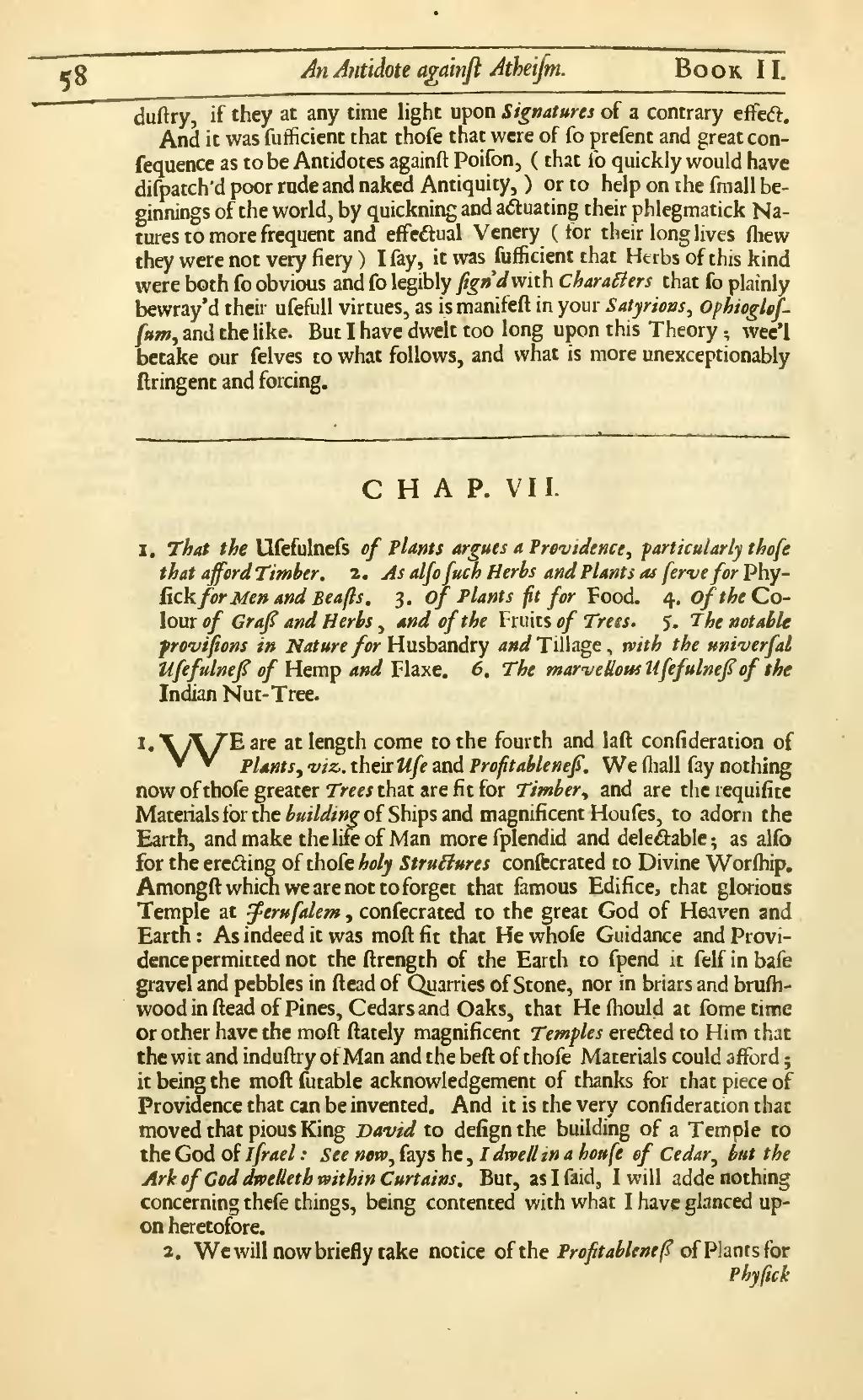dustry, if they at any time light upon Signatures of a contrary effect.
And it was sufficient that those that were of so present and great consequence as to be Antidotes against Poison, (that so quickly would have dispatch'd poor rude and naked Antiquity,) or to help on the small beginnings of the world, by quickning and actuating their phlegmatick Natures to more frequent and effectual Venery (for their long lives shew they were not very fiery) I say, it was sufficient that Herbs of this kind were both so obvious and so legibly sign'd with Characters that so plainly bewray'd their usefull virtues, as is manifest in your Satyrions, Ophioglossum, and the like. But I have dwelt too long upon this Theory; wee'l betake our selves to what follows, and what is more unexceptionably stringent and forcing.
Chap. VII.
1. That the Usefulness of Plants argues a Providence, particularly those that afford Timber. 2. As also such Herbs and Plants as serve for Physick for Men and Beasts. 3. Of Plants fit for Food. 4. Of the Colour of Grass and Herbs, and of the Fruits of Trees. 5. The notable provisions in Nature for Husbandry and Tillage, with the universal Usefulness of Hemp and Flaxe. 6. The marvellous Usefulness of the Indian Nut-Tree.
1. We are at length come to the fourth and last consideration of Plants, viz. their Use and Profitableness. We shall say nothing now of those greater Trees that are fit for Timber, and are the requisite Materials for the building of Ships and magnificent Houses, to adorn the Earth, and make the life of Man more splendid and delectable; as also for the erecting of those holy Structures consecrated to Divine Worship. Amongst which we are not to forget that famous Edifice, that glorious Temple at Jerusalem, consecrated to the great God of Heaven and Earth: As indeed it was most fit that He whose Guidance and Providence permitted not the strength of the Earth to spend it self in base gravel and pebbles in stead of Quarries of Stone, nor in briars and brushwood instead of Pines, Cedars and Oaks, that He should at some time or other have the most stately magnificent Temples erected to Him that the wit and industry of Man and the best of those Materials could afford; it being the most sutable acknowledgement of thanks for that piece of Providence that can be invented. And it is the very consideration that moved that pious King David to design the building of a Temple to the God of Israel: See now, says he, I dwelt in a house of Cedar, but the Ark of God dwelleth within Curtains. But, as I said, I will adde nothing concerning these things, being contented with what I have glanced upon heretofore.
2. We will now briefly take notice of the Profitableness of Plants for Physick

